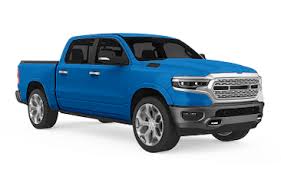Unlocking the Value: Exploring the World of Used Car Sales

The Benefits of Buying a Used Car
When it comes to purchasing a vehicle, many people often overlook the option of buying a used car. However, buying a used car can offer numerous advantages that make it a smart choice for budget-conscious buyers.
Cost-Effective
One of the primary reasons why people opt for used cars is the cost savings. Used cars are generally more affordable than brand new ones, allowing buyers to get more value for their money. Additionally, used cars have already undergone the initial depreciation that occurs when a new car is driven off the lot.
Lower Insurance Costs
Insurance rates for used cars are typically lower than those for new cars. Since insurance companies base their rates on the value of the vehicle, a lower-priced used car will result in lower insurance premiums, helping buyers save money in the long run.
Variety and Availability
The used car market offers a wide variety of makes and models to choose from. Whether you’re looking for a specific year or trim level, you’re likely to find it in the pre-owned market. This variety provides buyers with more options to find a vehicle that suits their needs and preferences.
Vehicle History Reports
Before purchasing a used car, buyers can access its vehicle history report to learn about its past ownership, maintenance records, and any reported accidents or damages. This transparency allows buyers to make informed decisions and ensures they are aware of any potential issues with the vehicle.
Favorable Financing Options
Many dealerships and financial institutions offer financing options specifically tailored for used cars. These options often come with competitive interest rates and flexible terms, making it easier for buyers to afford their desired vehicle without breaking the bank.
Conclusion
Overall, buying a used car can be a practical and cost-effective choice for individuals looking to purchase a reliable vehicle without overspending. With benefits such as cost savings, lower insurance costs, variety in selection, access to vehicle history reports, and favorable financing options, buying a used car is worth considering for your next automotive purchase.
Top 9 Questions to Ask When Buying a Used Car
- 1. What is the mileage on the used car?
- 2. Has the used car been involved in any accidents?
- 3. What is the maintenance history of the used car?
- 4. Is there a warranty or guarantee available for the used car?
- 5. Can I test drive the used car before making a purchase?
- 6. What is the asking price for the used car?
- 7. Are there any financing options available for purchasing the used car?
- 8. Can I see a vehicle history report for the used car?
- 9. Are there any additional fees or charges associated with buying the used car?
1. What is the mileage on the used car?
One of the most frequently asked questions when it comes to used car sales is about the mileage on the vehicle. The mileage of a used car provides valuable insight into its overall wear and tear, as well as how extensively it has been driven. Potential buyers often inquire about the mileage to gauge the car’s potential longevity, maintenance needs, and potential resale value. A lower mileage may indicate that the car has been driven less and could potentially have fewer mechanical issues, while a higher mileage might suggest more frequent use but does not necessarily mean poor condition if the vehicle has been well-maintained. Understanding the mileage on a used car is crucial for making an informed decision before making a purchase.
2. Has the used car been involved in any accidents?
One of the most common concerns when considering a used car purchase is whether the vehicle has been involved in any accidents. Understanding the car’s accident history is crucial for buyers to assess its overall condition and potential future reliability. By obtaining a detailed vehicle history report, buyers can gain insight into any past accidents, damages, or repairs that the car may have undergone. This information empowers buyers to make informed decisions and ensures transparency in the used car sales process, providing peace of mind for prospective owners.
3. What is the maintenance history of the used car?
When considering purchasing a used car, one frequently asked question is about the maintenance history of the vehicle. Understanding the maintenance history is crucial as it provides insight into how well the car has been cared for in the past. A comprehensive maintenance record can reveal whether routine services, such as oil changes, brake inspections, and tire rotations, have been consistently performed. Additionally, it can highlight any major repairs or replacements that have been carried out, giving potential buyers an indication of the overall condition and reliability of the used car. By reviewing the maintenance history, buyers can make informed decisions and ensure they are investing in a well-maintained vehicle that is likely to perform well in the future.
4. Is there a warranty or guarantee available for the used car?
When considering a used car purchase, a common question that arises is whether there is a warranty or guarantee available for the vehicle. The presence of a warranty can provide buyers with peace of mind knowing that they are protected against unforeseen issues that may arise after the purchase. It is essential to inquire about the specific details of any warranty or guarantee offered, such as its duration, coverage, and any conditions or limitations that may apply. Understanding the terms of the warranty can help buyers make informed decisions and ensure they are satisfied with their used car purchase in the long run.
5. Can I test drive the used car before making a purchase?
Prospective buyers often wonder, “Can I test drive the used car before making a purchase?” The answer is typically yes. Most reputable dealerships and private sellers allow potential buyers to test drive a used car to assess its condition, performance, and overall suitability. Test driving a used car is crucial as it provides firsthand experience behind the wheel, allowing buyers to evaluate factors such as comfort, handling, acceleration, and any potential issues. It is recommended to take the time to test drive a used car before finalizing the purchase decision to ensure that it meets your expectations and requirements.
6. What is the asking price for the used car?
When inquiring about a used car for sale, one common question that arises is, “What is the asking price for the used car?” The asking price refers to the initial price set by the seller for the vehicle. It serves as a starting point for negotiations and provides potential buyers with an idea of the seller’s expectations. Factors such as the car’s condition, mileage, age, and market value can influence the asking price. It is important for buyers to conduct research on similar models in the market to ensure they are getting a fair deal when negotiating the final purchase price of a used car.
7. Are there any financing options available for purchasing the used car?
When considering purchasing a used car, one common question that arises is, “Are there any financing options available?” The answer is yes. Many dealerships and financial institutions offer various financing options specifically tailored for used cars. These financing options often come with competitive interest rates and flexible terms, making it easier for buyers to afford their desired vehicle without having to pay the full amount upfront. By exploring different financing solutions, buyers can find a payment plan that fits their budget and allows them to drive away in a quality used car.
8. Can I see a vehicle history report for the used car?
When considering a used car purchase, a frequently asked question is, “Can I see a vehicle history report for the used car?” Requesting a vehicle history report is crucial in gaining insight into the car’s past ownership, maintenance records, any reported accidents, and potential issues. This report provides transparency and helps buyers make informed decisions about the vehicle’s condition and reliability. By reviewing the vehicle history report, buyers can assess the car’s background and ensure they are making a wise investment in a used vehicle.
9. Are there any additional fees or charges associated with buying the used car?
When purchasing a used car, it is common for buyers to inquire about any additional fees or charges associated with the transaction. While the specifics may vary depending on the dealership or seller, it is important to be aware of potential extra costs that could impact the total price of the vehicle. Some common additional fees include documentation fees, sales tax, registration fees, and any optional add-ons or services offered by the seller. It is advisable for buyers to clarify and understand all potential charges before finalizing the purchase to ensure transparency and avoid any surprises during the buying process.



